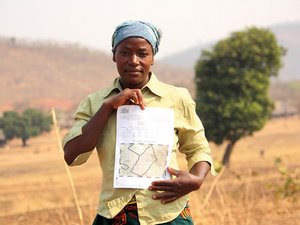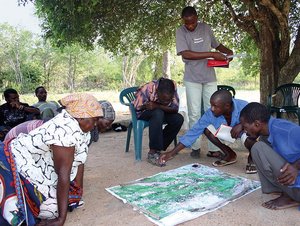Land

Land is a major source of people’s identities and livelihoods as well as being a key asset for households. Land ownership and land use rights crucially affect both equality of opportunity and economic and environmental stability. It is entirely justified to include these rights in the Sustainable Development Goals and not without reason that the adoption of the Voluntary Guidelines on the Responsible Governance of Tenure (VGGT) attracted so much attention four years ago. Often, land remains the only source of livelihood for poor and marginalised households. Thus improved security of land rights first of all creates secure access to basic necessities such as housing and nutrition. When such needs are met, the poor are more likely to be able to afford education, which helps people exit the vicious cycle of poverty.
Articles:
- Food security corridors – a promising solution to conservation and resource-grabbing conflicts(2023)
- Ten years of VGGT – a stocktaking(2022)
- The SDG Land Tracker – easy access to land-related indicators(2022)
- Little change in land governance practice(2022)
- Villagisation – better living conditions for the population or a pretext for land evictions?(2018)
- Inclusive land governance – Road to a better life(2016)
- Improving land governance – for the sake of the rural poor(2016)
- Why property rights matter(2016)
- Land governance in German development cooperation(2016)
- Land reform – the solution to rural poverty?(2016)
- What about the land rights of communities and Indigenous Peoples?(2016)
- Tanzania’s Village Land Act 15 years on(2016)
- Cambodia: Land grabs and rural dispossession by government design(2016)
- No food security without land tenure security?(2016)
- Those in darkness drop from sight(2016)
- Net impacts of large-scale land acquisitions(2016)
- Securing pastoralists’ land tenure rights(2016)
- Negotiating fair settlements(2016)
- Making the SDGs count for land rights(2016)
- “We can‘t be satisfied yet“(2016)
- Linking secure community land rights to local economic development(2012)
Land management

Throughout the world, demand for finite land resources is ever increasing, and can lead to irreversible land degradation, as land is used beyond its “bio-capacity”. Against this background, sustainable land management has become extremely important. The benefits are well-known, as are measures and best practices. But implementation is still lagging behind. A plea for more efforts in bringing together the world of conservation with the financial and development sectors.
- Greening a cold desert in the Himalayas – boon or bane?(2022)
- WOCAT – spreading sustainable land management world-wide(2022)
- Highlighting the true value of land(2022)
- Land degradation neutrality – a new impetus for addressing the degradation of land and soils(2018)
- Measuring land degradation needs to be done from the ground up(2018)
- Sustainable Land management – restoring degraded lands for a better future(2017)
- Sustainable land management – not an easy road(2016)



